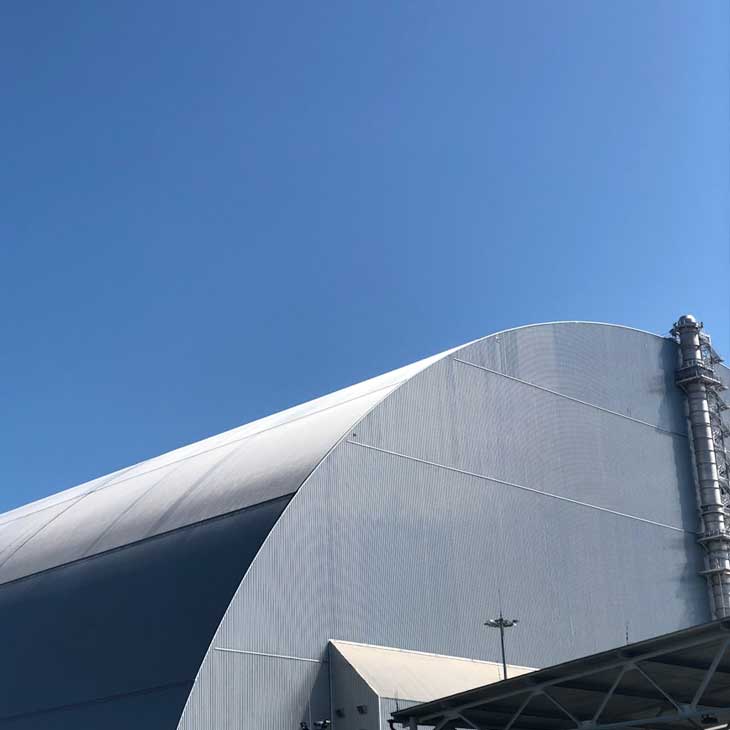Germany Tops Hydrogen As Its Main Focus for NetZero
Germany’s cabinet approved on Wednesday a bill to fast-track the construction of hydrogen infrastructure, import, and production facilities as Berlin bets on the fuel to help decarbonize Europe’s biggest economy, government sources said. The Hydrogen Acceleration Law will give infrastructure an “overriding public interest” status, meaning authorities will prioritize it in the approval process.
Permitting procedures will be simplified and digitized, and legal cases challenging hydrogen projects and environmental impact assessments will be shortened, according to the planned law, in the hope of a quick expansion of the fuel.
Germany wants to expand reliance on hydrogen as a future energy source to cut greenhouse gas emissions for highly polluting industrial sectors that cannot be electrified, such as steel and chemicals, and reduce dependency on imported fossil fuels. The acceleration will primarily benefit electrolysers, the devices that use energy to separate hydrogen from water, provided they can prove that they will use at least 80 percent renewable energy in the period up to the end of 2029.
Last month, Germany’s ruling coalition agreed to a financing mechanism for the country’s future hydrogen network and offered protection for investors in case of bankruptcies. In March, the government said it would earmark up to 3.53 billion euros ($3.84 billion) of public funds to procure green hydrogen and its derivatives between 2027 and 2036. The bill does not include faster construction of new natural gas power plants that will be converted to hydrogen in the future, a key demand of the energy industry.
Although Germany has not confirmed it’s focus we believe, applications of Hydrogen and the Role of Gas Sensing with proceed in this order:
1. Industrial Processes:
• Steel Manufacturing: Hydrogen can replace carbon-based reduction agents in steel production, significantly reducing CO2 emissions. Gas sensing technology ensures the safety and efficiency of hydrogen use in these high-temperature environments.
• Chemical Production: Hydrogen is a key input in producing ammonia and methanol, essential for fertilizers and various chemicals. Gas sensors help detect leaks and maintain safe operational standards.
2. Energy Storage and Generation:
• Power Plants: Hydrogen can be used in fuel cells or turbines to generate electricity, providing a clean energy source. Gas sensing is critical to monitor and detect leaks in these facilities to prevent accidents.
• Renewable Energy Storage: Excess renewable energy can be used to produce hydrogen via electrolysis, which can be stored and used when energy demand is high. Effective gas sensing ensures the integrity and safety of storage systems.
3. Transportation:
• Fuel Cell Vehicles: Hydrogen-powered vehicles emit only water vapor, offering a zero-emission alternative to traditional internal combustion engines. Gas sensors in vehicles detect hydrogen leaks, ensuring passenger safety.
• Shipping and Aviation: Hydrogen fuel can significantly reduce the carbon footprint of these industries. Advanced gas detection systems are necessary to manage the unique challenges of storing and using hydrogen on ships and airplanes.
4. Residential and Commercial Applications:
• Heating and Power: Hydrogen can be blended with natural gas for residential and commercial heating or used in fuel cells for combined heat and power systems. Gas sensors in these applications detect leaks to prevent potential hazards in homes and businesses.
Implementing comprehensive gas sensing technologies with a 4% threshold for leak detection is essential to the safe and efficient expansion of hydrogen infrastructure. As Germany advances its hydrogen strategy, ensuring the safety of these applications through robust gas detection systems will be paramount in achieving a sustainable and decarbonized future.
To help navigate the system we have put out top 10 useful resources in Germany to kickstart you H2 Economy
- H2UB – The place to go to is you are a (For Start-up’s)
- Hamburg Landing Pad (Setting up)
- Bavarian Office – (Germany)
- E-ON – Leading utility making (Utility)
- OGE – (Transmission Line)
- AirBus – (Manufacturer)
- H2UB is a European open innovation platform focused on accelerating the hydrogen economy. It supports hydrogen start-ups through mentorship, market research, networking events, and connections with companies, investors, and research institutes. H2UB organizes programs like sprints and bootcamps to help start-ups develop their business models, secure funding, and pitch their ideas. The platform also hosts events to foster collaboration and innovation within the hydrogen sector.
For more information, visit H2UB. - E.ON plays a significant role in the hydrogen economy by developing and promoting hydrogen technologies and infrastructure. The company focuses on integrating hydrogen into its energy solutions, aiming to decarbonize industries and transportation. E.ON invests in hydrogen production, storage, and distribution projects and collaborates with partners to create a sustainable hydrogen supply chain. This includes initiatives for hydrogen-powered heavy vehicles and other industrial applications, supporting the transition to a low-carbon energy system.
For more information, visit E.ON. - BayFOR (Bavarian Research Alliance) supports the hydrogen economy by facilitating research and innovation projects through funding, partnerships, and consultancy. It assists in securing EU funding, finding project partners, and managing projects related to hydrogen technology. BayFOR aims to promote sustainable energy solutions and supports initiatives that advance hydrogen production, storage, and utilization within various sectors, contributing to the transition to a low-carbon economy
For more information, visit [BayFOR](https://bayfor.org). https://www.h2ub.com - Hamburg Invest plays a crucial role in the hydrogen economy by promoting Hamburg as a leading hub for green hydrogen. The organization supports the development of hydrogen technologies and infrastructure, fosters partnerships between businesses and research institutions, and helps attract investments in hydrogen projects. Through initiatives like the HY-5 alliance and the city’s hydrogen strategy, Hamburg Invest aims to establish a sustainable hydrogen ecosystem, positioning Hamburg as a model city for hydrogen innovation and integration.
For more information, visit [Hamburg Invest](https://hamburg-invest.com/). - OGE (Open Grid Europe) plays a pivotal role in the hydrogen economy by developing infrastructure for hydrogen transport and storage. The company is involved in several key hydrogen projects, including H₂ercules and GET H2 Nukleus, which aim to create an efficient hydrogen network across Europe. OGE’s efforts support the transition to a hydrogen-based energy system by ensuring the availability and reliable delivery of hydrogen, thereby fostering sustainable energy solutions
For more information, visit [OGE](https://oge.net/). - Airbus is a key player in the hydrogen economy by pioneering hydrogen-powered aviation. The company is developing the ZEROe project, which aims to launch the world’s first zero-emission commercial aircraft by 2035. Airbus focuses on hydrogen propulsion technologies, including fuel cells and combustion engines using liquid hydrogen, to reduce aviation’s carbon footprint significantly. This initiative is part of Airbus’s broader commitment to sustainability and innovation in creating a more environmentally friendly aerospace industry.
more information, visit [Airbus](https://airbus.com/). - Fraunhofer plays a crucial role in the hydrogen economy through extensive research and development of hydrogen technologies. They focus on creating innovative solutions for hydrogen production, storage, and utilization, aiming to enhance efficiency and sustainability. Fraunhofer’s projects include developing materials and processes for hydrogen systems, advancing fuel cell technology, and optimizing hydrogen infrastructure. Their efforts contribute significantly to the transition to a hydrogen-based energy system, supporting industries in reducing carbon emissions and fostering sustainable energy practices.
- CDI (Corporate Development International) plays a significant role in the hydrogen economy by offering specialized consulting and project management services aimed at advancing hydrogen technologies and infrastructure. They support businesses and governments in the transition to a hydrogen-based energy system through strategic planning, feasibility studies, and implementation of hydrogen projects. CDI’s expertise includes optimizing hydrogen production, storage, and distribution processes, which are crucial for creating a sustainable and efficient hydrogen supply chain. Their efforts contribute to accelerating the adoption of hydrogen as a key component in achieving global decarbonization goals. For more information, visit [CDI](https://it.cdi.eu).
- The German Aerospace Center (DLR) significantly contributes to the hydrogen economy through its research and development in hydrogen technologies. DLR focuses on hydrogen production, storage, and utilization, aiming to enhance the efficiency and sustainability of hydrogen as an energy source. The organization conducts extensive projects that integrate hydrogen into various sectors, including aviation, transport, and energy systems, promoting the transition to a low-carbon economy. DLR’s work helps drive innovation and practical applications of hydrogen technologies. For more information, visit [DLR](https://www.dlr.de/en) .
The Importance of Proper Gas Sensing for Leak Detection
Accurate and reliable gas sensing is crucial for leak detection, especially for hydrogen, due to its highly flammable nature. Fast Sense can help provide solution for proper gas sensing mechanisms with a detection threshold of 0-4% or up to 99% to prevent catastrophic events and ensure safety in the development and operation of your hydrogen infrastructure. Effective gas sensing is vital for maintaining safety standards, protecting both human life and the environment from the potential hazards of hydrogen leaks.








